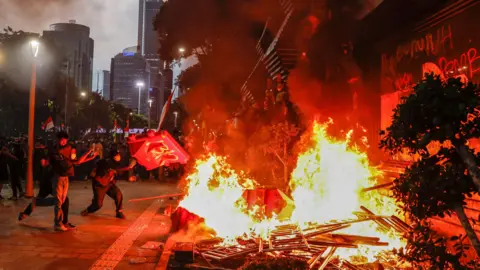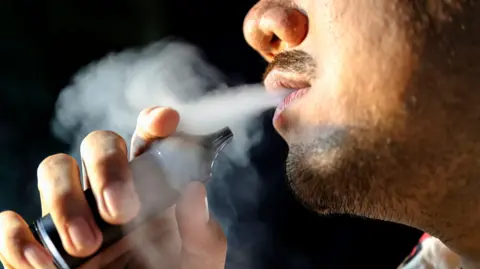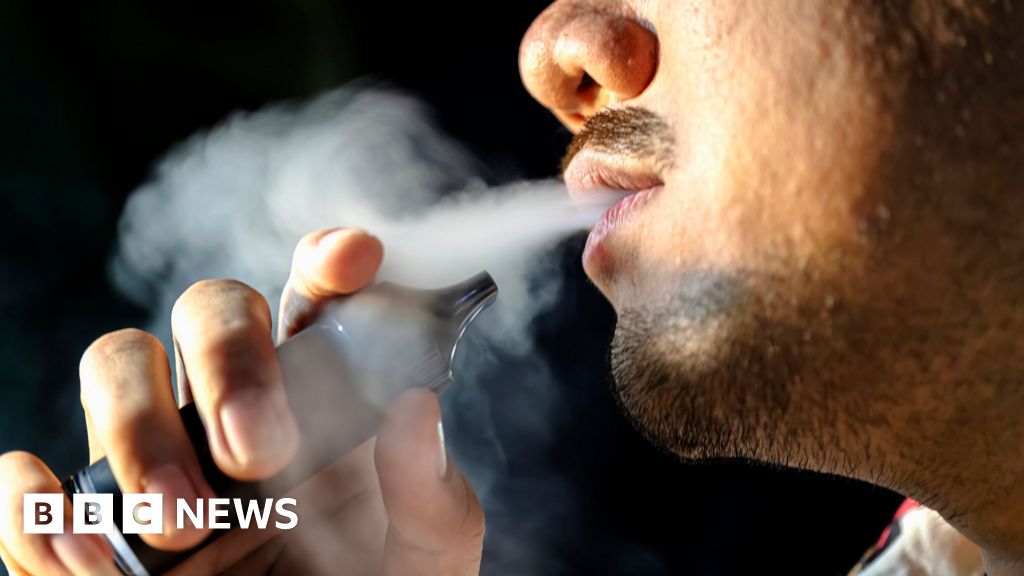Indonesian police have made significant strides in eradicating an alleged international baby trafficking syndicate, which reportedly sold at least 25 infants to buyers across Singapore since the beginning of 2023. This week, 13 individuals were arrested in the Indonesian cities of Pontianak and Tangerang, and six babies, all around the age of one, were rescued from further trafficking.
West Java's director of general criminal investigation, Surawan, informed BBC News Indonesia that the syndicate operated by initially housing the infants in Pontianak and orchestrating their immigration documentation before their transfer to Singapore. Authorities in Singapore have been approached for comments, though responses have yet to be received.
The syndicate's tactics reportedly involved using social media, particularly Facebook, to target parents or expectant mothers who were unwilling to keep their child. "Some babies were even reserved while still in the womb," Surawan noted, highlighting the alarming nature of these exploitative practices. Once the babies were born, traffickers allegedly covered delivery expenses and provided compensation to the biological mothers before taking possession of the infant.
The police investigation identified members of the syndicate who worked as recruiters, caretakers, and document falsifiers. Following abduction, babies were housed with caretakers for two to three months while their birth certificates and passports were fabricated. Reports suggest that these infants were sold at prices ranging between 11 million and 16 million Indonesian rupiah (approximately $673 to $1,052).
In statements made by the authorities, it was revealed that some of the individuals arrested claimed the syndicate trafficked at least 12 male and 13 female babies domestically and abroad, primarily sourced from the various districts of West Java. Police prioritized locating the adopters in Singapore, emphasizing the importance of tracking the departing infants' records to ascertain who received them.
Authorities have stated that the parents who cooperated in these transactions might face criminal charges if it were proven that they had consented to the sale of their children out of financial desperation. Surawan indicated that some parents later reported kidnappings when brokers failed to pay them, complicating the legal landscape surrounding these cases.
Underpinning such trafficking cases, Ai Rahmayanti, commissioner of the Indonesian Child Protection Commission (KPAI), highlighted the vulnerability of women who often find themselves in desperate situations, including unwanted pregnancies due to sexual violence or abandonment. The legal environment for abortion complicates these cases further, as it is heavily restricted in Indonesia.
Rahmayanti remarked that these syndicates often disguise themselves as maternity clinics or orphanages. They employ compassionate language to lure in vulnerable women but ultimately aim to capitalize on their despair. Despite a lack of official statistics, KPAI has noted a disturbing trend regarding child trafficking and illegal adoption, with cases increasing significantly over the last few years.
The police in Indonesia have requested support from Interpol as well as Singapore's law enforcement to apprehend remaining members of the syndicate who are believed to be operating abroad. Furthermore, they plan to issue a red notice to alert international authorities for the arrest of these individuals, emphasizing the importance of global cooperation in combating human trafficking.




















